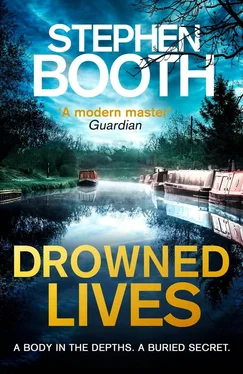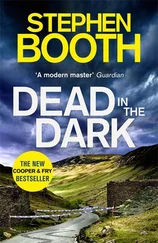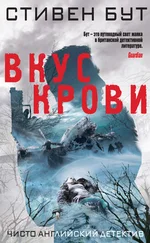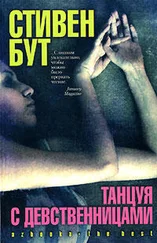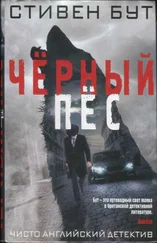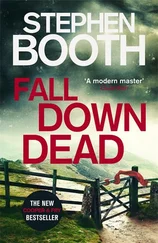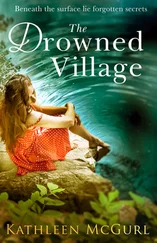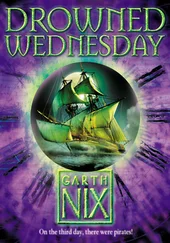So the things I’d previously taken for granted as part of normal life had begun to seem strange and unreal. Only then did I fully realise the determination of the city to hang on to its past. History lived and breathed in the streets. There were the endless performances of ancient customs, from the Greenhill Bower procession and the Sheriff’s Ride to the Court of Arraye and the View of Frankpledge, whose very names seemed to be relics of the past preserved like insects in aspic.
Medieval buildings alternated with Georgian facades in a determined rearguard action against the encroachment of McDonald’s and Superdrug. The market square where Edward Wightman became the last man in England to be burned at the stake was a few strides from WH Smith’s and Allsports. In the Cathedral Close, the sounds of a choir seeped from oak doorways and the remains of fortifications still stood where they’d been left at the end of the Civil War. If the past was another country, you’d need a passport to enter Lichfield.
In my parents’ house on Stowe Pool Lane, yet another part of the past had been preserved. Here, the air was redolent of the 1950s and early 60s. It almost came as a surprise to see a colour television in the corner of the sitting room, to glimpse the occasional CD among the vinyl Frank Sinatra records stacked by the stereo. The trouble was, this was my past. It was where I’d been brought up, where I’d spent the years when my beliefs and attitudes had been formed, for better or worse. The years when I learned what nightmares were, and I’d come to fear my father.
In my heart, I was afraid of relationships because I was afraid of becoming like him. Rachel might see the unconscious similarities in the things I did. But consciously, I’d tried to be as unlike him as I could. My father used to take me to see Wolves play. Now I supported Aston Villa. I’d moved away from my home city, only to be drawn back again. Instead of a safe, boring job, I’d opted for a high-risk venture that had failed. I’d never married, and now I was learning what loneliness was. I preferred not to think of the past, of school, of my old schoolfriends. I even avoided the pop music from my teenage years because of its unpleasant associations. I’d tried to live in the present and look only to the future.
Now Great-Uncle Samuel had taught me a hard lesson. You can ignore other people’s pasts, if you want to. But you can’t turn your back on your own.
I came back to the present to find that Rachel had moved closer and was perched on the arm of my chair with an expression of concern. She touched my hand, and for once I didn’t feel inclined to pull away. A shiver of dread had run through my body when my thoughts touched on those childhood memories. There are times when contact with another human being is vital, whoever it may be.
‘What were you thinking about then?’ asked Rachel. ‘Something awful.’
‘My father,’ I said.
She nodded. ‘Did you really hate him?’
‘Hate him? I was afraid of my father, yes. But I didn’t hate him. I didn’t resent him as much as I did my mother. It was my mother I expected to protect me, and she didn’t do that.’
‘Poor Chris. I wonder if your Great-Uncle Samuel realised what he was doing when he decided to make you look into your family and your past.’
‘Oh, I think he realised that all right.’
Yes, Samuel Longden had deliberately set about re-awakening what he called my ‘genetic memory’. He’d wanted me to face up to things that I thought I’d never known about, or had managed to forget. But you can’t wipe things out of your mind altogether. You can only push them deeper into the dark corners of the subconscious. Forgetfulness is only a pretence of the mind, an implicit acknowledgement of unwelcome memories.
‘But look at it positively,’ said Rachel, still clinging to my hand. ‘You’ve discovered another family now. One you never knew you had. You should talk to them. Talk to Caroline.’
‘I don’t need a family, thanks. I was always fine on my own.’
‘We’d all like to think we’re independent, but no one lives in isolation. You can’t repudiate kinship. It’s a fact of life. You’re one of them, whether you like it or not.’
‘We’re not exactly going to gather round the piano for an old-fashioned family sing-along, are we? What’s done is done, and it’s nonsense to think we can go back and make it come out any different.’
‘I’ve been wondering, though, Chris...’
‘Yes?’
‘What if the body they retrieved from the canal wasn’t William Buckley?’
‘We’ll never know for certain, if the police won’t get a DNA test.’
‘No. But that might be for the best.’
‘What do you mean?’
‘Well, what if it wasn’t a Buckley at all,’ she said, ‘but one of William and Josiah’s enemies, a Parker? Francis maybe.’
‘No, Francis was transported to Australia. How would he end up in a canal in Staffordshire?’
‘Do we know he was transported permanently? Sometimes they were sent for a specific period, then allowed to return home.’
I hadn’t known that. It unsettled me to think that Francis Parker, the real criminal, might have been allowed back to Staffordshire after serving his sentence.
‘Well, perhaps not Francis,’ said Rachel. ‘But some other Parker. There were plenty of them, by all accounts.’
‘But why are you suggesting this? What are you trying to say?’
‘I’m just suggesting that both families might have been as bad as each other. You’ve been focused on the idea of William and Josiah being murdered, and that’s understandable. But you’ve never considered a Parker might have been murdered by a Buckley.’
‘As bad as each other?’
It was a hard thought. But I had to acknowledge that Rachel could be right again. I didn’t know what else might have happened in the feud over those two centuries, what acts of violence could have kept it alive. An eye for an eye, a tooth for tooth. Some of the Buckleys might have believed in that. Perhaps I was one of them.
‘It’s academic anyway,’ I said. ‘There’s no way they could identify the body without having some idea who it was, and then obtaining a DNA sample from a living relative for comparison. And even then, the best they could hope would be a familial match.’
Although I tried to dismiss the idea, Rachel had planted a doubt in my mind. I resolved not to mention the idea of a DNA test to the police again. If they’d written it off as too old a crime, it probably was for the best.
‘Also,’ she said tentatively, ‘I’ve been wondering whether you’re missing the point about what Samuel Longden expected you to do. Are you sure he wanted you to finish the book and publish it?’
‘Of course. That’s what he said.’
‘When?’
I thought back carefully. ‘Well, he didn’t say it to me in person. He hadn’t got round to explaining properly what he wanted when he died. But he left me the manuscript and all his notes, didn’t he?’
‘From which you assumed that he wanted you to finish it off. But he didn’t actually say so.’
‘Ah, but there was the letter he left with Mr Elsworth. That was clear.’
She raised an eyebrow. ‘Was it? Have you still got it?’
‘Somewhere here.’
‘Find it and read it again.’
‘But, for heaven’s sake, what else could he have meant?’
‘There might be another way that you could “finish it”, other than publishing the book,’ she said.
‘You’ve lost me.’
‘Well, ask yourself, finish what? You assumed he meant the book. But couldn’t he just have easily meant he wanted you to finish the feud? There would be one way to do that — to decide you weren’t going to take revenge for the wrongs you think you’ve been done, to wipe the slate clean. That would finish the feud. You could consign it to history, where it belongs. Wouldn’t that be better than prolonging it?’
Читать дальше
